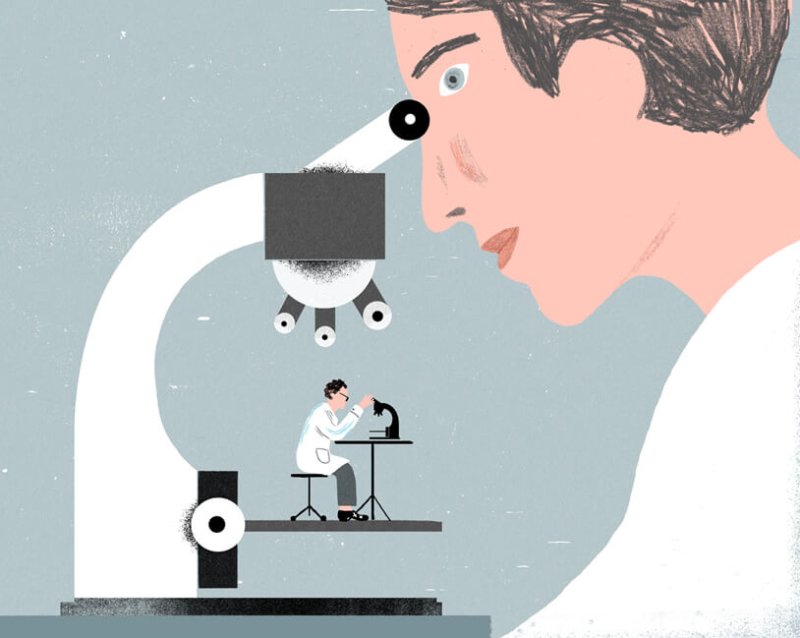This article originally appeared on Medium here and was reposted with permission of the author.
Stop misusing science to scare the world’ is the headline on a column in yesterday’s Times by Matt Ridley. He opens with how Andrew Wakefield’s fraudulent research has led to pseudoscientific claims linking the MMR vaccine to autism, then draws a parallel with a report from the International Agency for Research on Cancer (IARC), a World Health Organization body, which has classified the herbicide glyphosate as ‘probably carcinogenic.’
Ridley says “the IARC study is surely pseudoscience” and makes the case that we should all be scared that scientific bodies are becoming “infected.”
It’s a well-crafted piece of rhetoric. But what is genuinely scary is using newspaper column space to undermine public trust in mainstream scientific institutions.
Ridley rests his case against IARC on the shoulders of one man:
…the document depends heavily on the work of an activist employed by a pressure group called the Environmental Defense Fund: Christopher Portier, whose conflict of interest the IARC twice omitted to disclose. Portier chaired the committee that proposed a study on glyphosate and then served as technical adviser to the IARC’s glyphosate report team, even though he is not a toxicologist.
That sounds pretty bad. But dig a little bit (like the first result in google) and it’s clear that Portier isn’t your average activist. Before working for the Environmental Defense Fund, Portier has been:
- Director of the National Center for Environmental Health at the CDC
- Director of the Agency for Toxic Substances and Disease Registry at the CDC
- Associate Director of the National Institute of Environmental Health Sciences
IARC documents say that ‘invited specialists’ like Portier “have critical knowledge and experience but have a real or apparent conflict of interests,” and the glyphosate report itself states “Christopher J Portier receives a part-time salary from the Environmental Defense Fund, a United States– based nonprofit environmental advocacy group.”
How IARC deals with conflict of interest is worthy of scrutiny, but Portier does not seem to be a one-off. The IARC report on air pollution, the report before glyphosate, had invited specialists who received funding from the US car industry and the European oil companies.
The ‘revealing’ of Portier is down to David Zaruk, who runs the Risk-Monger blog and writes extensively attacking IARC. And there are good reasons to criticize, even if infiltration by agenda driven activists is not one of them.
When IARC classifies things as possible, probable or definite carcinogens it assesses whether there is any possibility they can cause cancer, not whether people are at risk from real-world exposures. But when IARC punts out these classifications it puts no effort into preventing the inevitable scary headlines. Instead they leave it to others to do the explaining.
And it’s certainly true that IARC classifications are ripe for being abused. I groan inside every time I read an activist intone that glyphosate is a WHO-certified carcinogen in their war against large-scale agriculture. Glyphosate, with its association to Monsanto, has become a whipping boy and the limited amount of evidence about its risks to human health blown out of all proportion.
But the recruitment of IARC’s classifications by activists is not the same as infiltration. And their communication problem does not mean their science is shaky.
Alongside Zaruk, another blogger Ridley quotes is James Gurney, an early career microbiologist at the University of Montpellier, who criticizes the scholarship of IARC’s report as “on a par with Andrew Wakefield of MMR/autism fame.”
Are two bloggers really the best sources for questioning the validity of one of the world’s premier scientific authorities on cancer? It would be far more convincing if alarm bells were being sounded from mainstream science.
There is, in fact, quite a fiery war of words being fought between those involved in the IARC report, and the authors of a report from the European Food Safety Authority which concluded glyphosate is “unlikely to pose a carcinogenic hazard to humans”. But that argument is being fought over the strength of the evidence; a healthy example of how scientific consensus is established.
On the other hand, conspiracy theories about activist infiltration politicize the issue, and politicization is a surefire way to erode trust in scientists. When people stop trusting mainstream science, that’s the stuff that leads to disasters like MMR.
This article originally appeared on Medium here and was reposted with permission of the author.
Robin Bisson, @RobinBisson, is director of The Genetic Expert News Service (GENeS), affiliated with the University of California-Davis World Food Center Institute for Food and Agricultural Literacy, which provides access to scientific expertise and opinion on the latest genetics and biotechnology news in North America.































